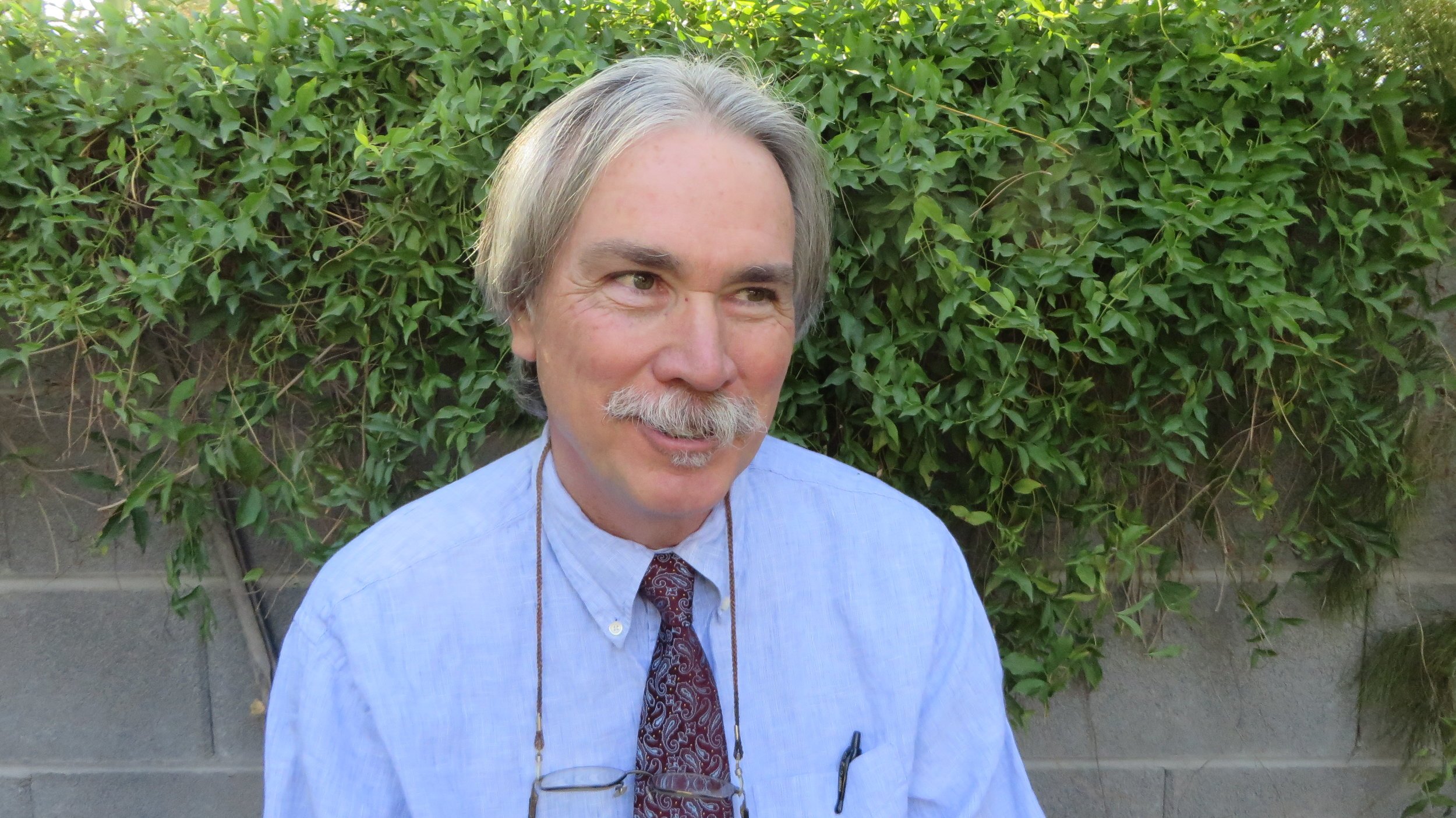A Striking Conversation with Donald Revell
Courtesy of Donald Revell and Alice James Books
Donald Revell is the author of fifteen collections of poetry, most recently of The English Boat (2018) and Drought-Adapted Vine (2015), both from Alice James Books. Revell has also published six volumes of translations from the French, including Apollinaire’s Alcools, Rimbaud’s A Season in Hell, Laforgue’s Last Verses, and Verlaine’s Songs without Words. His critical writings have been collected as: Essay: A Critical Memoir; The Art of Attention; and Invisible Green: Selected Prose. Donald Revell is currently a Professor of English at UNLV and a faculty affiliate of the Black Mountain Institute.
I had the pleasure and honor of asking Donald about any advice he has gotten that has stayed with him, who some poets are still living that he greatly admires, his selection process for his current book, and so much more.
UZOMAH: How do you hope your readers will receive and interpret your current book?
DONALD: I hope that readers will read the poems as a call—a call to consider the deepest meanings and motives and consequences of the changes underway in both society and in the health of our planet. Two, I hope to have made a case for the sacredness that glows at the center of language and of all phenomena.
U: Could you share with us your personal journey of growth as a writer and poet? What significant changes, such as your writing style, themes, or approach, have you noticed from your early days to where you are now that demonstrate your evolution?
D: I don’t feel that my themes have changed all that much. Rather, they have travelled with the times. But I think I can say that, over the years, I have learned a few things about trust, and about how essential it is for a poet to trust every lineament of the occasion in which a poem is made. Attention must not falter or fail. Meaning does not reside in a poem. It simply passes through. And a poet must honor the passage.
U: Can you recall any specific writing advice you have gotten from a teacher, professor, or fellow writer, such as a technique or mindset, that has stayed with you?
D: Nearly everyone I have ever known has been a teacher to me. But the most valuable advice I have ever been given vis-à-vis my poetry came from 2 very different teachers: Elias Schwartz, my professor of prosody, and Robert Creeley, my professor at Buffalo, and then, thank heaven, my friend. Both of these men called my attention to the syllables, to the literal stuff of which poems are made. They taught me that everything that happens happens on the line.
U: Is writing a form of relaxation or healing for you? If so, how are they, and in what ways have those two methods helped you be a better writer?
D: For me, writing is a sacrament of praise—the more perfect my gratitude, the better I enjoy the writing.
U: Who are some living poets you greatly admire and draw inspiration from?
D: Jorie Graham…Pam Rehm…Paul Hoover…Peter Gizzi…Maxine Chernoff…Brenda Hillman…Robert Hass.
U: When growing up, did you grow up in a literary environment?
D: Not at all. My parents were wonderful people, but no readers. But my church, St Peter’s Episcopal in the Bronx, was a fountain of beautiful language coming tenderly from the Book of Common Prayer.
U: What defining moments have you had as a writer/poet, such as the publication of a significant work or a transformative experience, shaped your career?
D: Every love has been a transformative experience, and most especially (and most continually) the love for and of my children. I don’t mean this sentimentally. I mean that every love is a fundamental change of mind.
U: There are many titles for being creative, even what it means to be published. What title, if any, do you want to be referred to?
D: I can only echo something wonderful that Thomas Hardy said…I would like to be thought of as someone who Noticed things.
U: Through the various development stages of one of your books, you develop ideas, plan, go through drafts, work with an editor, etc. What do you find is the easiest, and what do you see is the hardest?
D: I don’t do much in the way of revision; I’d rather simply begin again/anew. And every suggestion I’ve ever had from my generous editors has been a joy to accept. My one difficulty, and it never goes away, has been with the line, because lines so often seem to want to go on forever, right off of the page, in pursuit of Heaven knows what.
U: What was the selection process like for your latest book, Canandaigua? Were there poems that you wish you included but didn’t make the cut? Which are some of your favorites that stand out and why?
D: Every poem I wanted to appear in Canandaigua did indeed appear in the final text, and I’m grateful to have written them all. But if I were to name favorites, I would have to name 2: the poem in memory of Jean Valentine, because I loved her so dearly; and “Thistle,” because in “Thistle,” I was fortunate enough to bring my entire mind to bear upon my home and my moment.
For more information about Donald’s latest book and more titles from Alice James Books, please visit their site here. The magazine also highlights Donald’s latest book, which can be found here.
